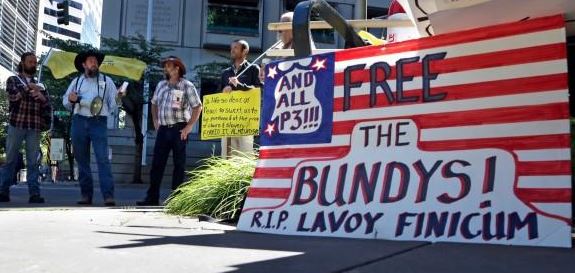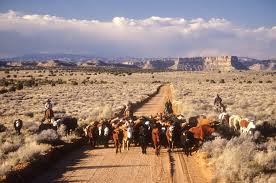With help from the National Center for Constitutional Studies (NCCS www.nccs.net) here are some famous quotes by the founding fathers about the Constitution.
George Washington: “It appears to me, then, little short of a miracle, that the delegates from so many different states (which states you know are also different from each other, in their manners, circumstances, and prejudices) should unite in forming a system of national government.”
James Madison on the Constitutional Convention of 1787: “…impossible to consider the degree of concord which ultimately prevailed as less than a miracle.”
John Adams: “I always consider the settlement of America with reverence and wonder, as the opening of a grand scene and design in Providence for the illumination of the ignorant, and the emancipation of the slavish part of mankind all over the earth.”
George Washington: “A primary object…should be the education of our youth in the science of government. In a republic, what species of knowledge can be equally important? And what duty more pressing…than…communicating it to those who are to be the future guardians of the liberties of the country?”
George Washington: “We may, with a kind of pious and grateful exultation, trace the fingers of Providence through those dark and mysterious events which first induced the states to appoint a general convention, and then led them one after another…into an adoption of the system recommended by that general convention, thereby, in all human probability, laying a lasting foundation for tranquility and happiness, when we had but too much reason to fear that confusion and misery were coming rapidly upon us. That the same good Providence may still continue to protect us, and prevent us from dashing the cup of national felicity just as it has been lifted to our lips, is [my] earnest prayer.”
George Washington: “The power under the Constitution will always be in the people. It is entrusted for certain defined purposes, and for a certain limited period, to representatives of their own choosing; and whenever it is executed contrary to their interest, or not agreeable to their wishes, their servants can and undoubtedly will be recalled.”
Thomas Jefferson: “We in America do not have government by the majority—we have government by the majority who participate…. All tyranny needs to gain a foothold is for people of good conscience to remain silent.”
Thomas Jefferson: “The true theory of our Constitution is surely the wisest and best, that the states are independent as to everything within themselves, and united as to everything respecting foreign nations. Let the general government be reduced to foreign concerns only, and let our affairs be disentangled from those of all other nations, except as to commerce, which the merchants will manage the better, the more they are left free to manage for themselves, and our general government may be reduced to a very simple organization, and a very inexpensive one; a few plain duties to be performed by a few servants.”
James Madison: “A well-instructed people alone can be permanently a free people.”
James Madison: “To suppose that any form of government will secure liberty or happiness without any virtue in the people is a chimerical idea.”
James Madison: “The powers delegated by the proposed Constitution to the federal government are few and defined. Those which are to remain in the State governments are numerous and indefinite. The former [federal powers] will be exercised principally on external objects, as war, peace, negotiation, and foreign commerce…. The powers reserved to the several States will extend to all the objects which, in the ordinary course of affairs, concern the lives, liberties, and properties of the people, and the internal order, improvement, and prosperity of the State.”
John Adams: “Our Constitution was made only for a moral and religious people. It is wholly inadequate to the government of any other.”
John Adams: “No man will contend that a nation can be free that is not governed by fixed laws. All other government than that of permanent known laws is the government of mere will and pleasure.”
Benjamin Franklin: “Only a virtuous people are capable of freedom. As nations become corrupt and vicious, they have more need of masters.”
Samuel Adams: “The sum of all is, if we would most truly enjoy the gift of Heaven, let us become a virtuous people; then shall we both deserve and enjoy it. While, on the other hand, if we are universally vicious and debauched in our manners, though the form of our Constitution carries the face of the most exalted freedom, we shall in reality be the most abject slaves.”
Joseph Story, 18th member of the Supreme
Court, said of the Constitution: “The structure has been erected by architects of consummate skill and fidelity; its foundations are solid, its compartments are beautiful, as well as useful; its arrangements are full of wisdom and order and its defenses are impregnable from without. It has been reared for immortality, if the work of man may greatly aspire to such a title. It may, nevertheless, perish in an hour by the folly, and corruption or negligence of its only keepers, the people. Republics are created by the virtue, public spirit and intelligence of the citizens. They fall when the wise are banished from the public councils, because they dare to be honest and the profligates are rewarded because they flatter the people in order to betray them.”
Daniel Webster: “It is hardly too strong to say that the Constitution was made to guard the people against the dangers of good intentions…. There are men, in all ages…who mean to govern well; but they mean to govern. They promise to be kind masters; but they mean to be masters…. They think there need be but little restraint upon themselves…. The love of power may sink too deep in their own hearts….Hold on, my friends to the constitution and to the republic for which it stands. Miracles do not cluster, and what has happened once in 6000 years, may not happen again. Hold on to the Constitution, for if the American Constitution should fail, there will be anarchy throughout the world.”
Daniel Webster: “Other misfortunes may be borne, or their effects overcome. If disastrous war should sweep our commerce from the ocean, another generation may renew it; if it exhaust our treasury, future industry may replenish it; if it desolate and lay waste our fields, still, under a new cultivation, they will grow green again, and ripen to future harvests. It were but a trifle even if the walls of yonder Capitol were to crumble, if its lofty pillars should fall, and its gorgeous decorations be all covered by the dust of the valley. All these might be rebuilt. But who shall reconstruct the fabric of demolished government? Who shall rear again the well-proportioned columns of constitutional liberty? Who shall frame together the skillful architecture which unites national sovereignty with State rights, individual security, and public prosperity? No, if these columns fall, they will be raised not again. Like the Coliseum and the Parthenon, they will be destined to a mournful, a melancholy immortality. Bitterer tears, however, will flow over them, than were ever shed over the monuments of Roman or Grecian art; for they will be the remnants of a more glorious edifice than Greece or Rome ever saw, the edifice of constitutional American liberty.”
Thomas Jefferson: “We owe every other sacrifice to ourselves, to our federal brethren, and to the world at large, to pursue with temper and perseverance the great experiment which shall prove that man is capable of living in society, governing itself by laws self-imposed, and securing to its members the enjoyment of life, liberty, property, and peace; and further to show, that even when the government of its choice shall manifest a tendency to degeneracy, we are not at once to despair, but that the will and the watchfulness of its sounder parts will reform its aberrations, recall it to original and legitimate principles, and restrain it within the rightful limits of self-government.”
Alexis de Tocqueville: “For sixty years the [American] people … have increased in opulence; and — consider it well — it is found to have been, during that period, not only the most prosperous, but the most stable of all the nations of the earth…. Where else could we find greater causes of hope, or more instructive lessons? Let us look to America, not in order to make a servile copy of the institutions that she has established, but to gain a clearer view of the polity that will be the best for us…. The laws of the French republic may be, and ought to be in many cases, different from those which govern the United States; but the principles on which the American constitutions rest, those principles of order, of the balance of powers, of true liberty, of deep and sincere respect for right, are indispensable to all republics.”
William Pitt, the great leader in Parliament, said of the U. S. Constitution: “It will be the wonder and admiration of all future generations, and the model of all future constitutions.”
William E. Gladstone, the prime minister of England, said of the U. S. Constitution: “It is the greatest piece of work ever struck off at a given time by the brain and purpose of man.”
Sir John A. Macdonald, the first prime minister of Canada, said of the U. S. Constitution:: “I think and believe that it is one of the most perfect organizations that ever governed a free people.”
Samuel Langdon, in 1788: “On the people, therefore, of these United States, it depends whether wise men, or fools, good or bad men, shall govern…. Therefore, I will now lift up my voice and cry aloud to the people…. From year to year be careful in the choice of your representatives and the higher powers [offices] of government. Fix your eyes upon men of good understanding and known honesty; men of knowledge, improved by experience; men who fear God and hate covetousness; who love truth and righteousness, and sincerely wish for the public welfare…. Let not men openly irreligious and immoral become your legislators…. If the legislative body are corrupt, you will soon have bad men for counselors, corrupt judges, unqualified justices, and officers in every department who will dishonor their stations…. Never give countenance to turbulent men, who wish to distinguish themselves and rise to power by forming combinations and exciting insurrections against government…. I call upon you also to support schools in your towns…. It is a debt you owe to your children.”





do my best to, yea. not going to say I ever mess that up
Fair enough. Have you practiced what you preach?
today the constitution is 227 years old. and while knowledge is always a good thing, the constitution is concerned with the humanity of mankind. let’s try and remember that as we move forward in our communities…in Millard County…and with the issues we discuss.
http://www.cryptik.com/home/the-greatest-speech-ever-made.html
Great link. Thanks for sharing.
I take it from your comment that amongst all the humanity that exists in Millard County, you’re not convinced we have any despots or tyrants in power who seek to dominate and control the lives of others that the Constitution is intended to help hold in check. If that is what you think I suggest you read the new zoning ordinances which seek to micro-manage the most simple acts of owning and using property. Then consider the tactics routinely employed by the sheriff’s department. The constitution is concerned with helping to protect humanity against exactly those kinds of abuses.
read it, thanks. I can see some things I’m not convinced are a good idea in it and expect to see it repealed or abandoned completely.
I don’t have a problem with the MCSD. I appreciate that they are willing to go out every single day and protect me and mine.
Who is going to repeal or abandon it, Withers and Roper? When?
my comment was in regard to the hatred, anger, and poor judgment I have seen here on both sides. making a point at the cost of our humanity is self-defeating at best – cruel at worst.